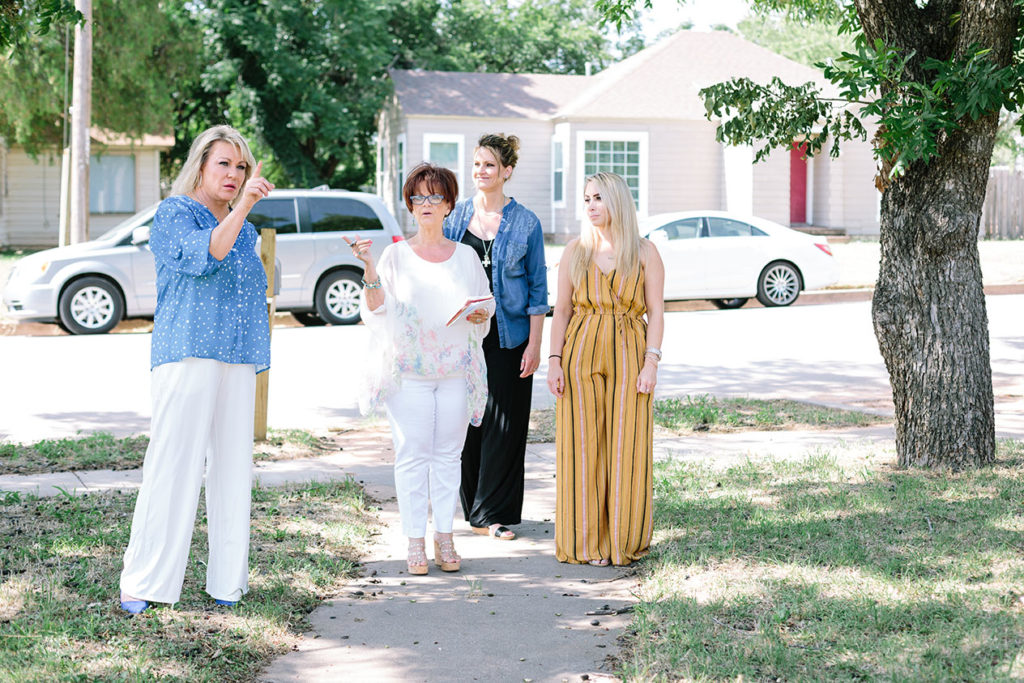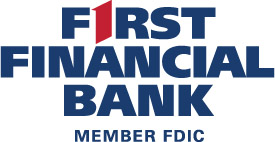Neither age nor perceived lack of funds should be an impediment to achieving financial freedom – just ask 17-year-old Cole Patterson, whose foray into the world of finance began in the second grade in the form of “power balance” bracelets, which he purchased from eBay for $2 and sold for twice as much.
“Since my first attempt at my own little business, the success that came from that has driven me to continue the entrepreneurial mindset into other products I made or purchased and then sold,” said Patterson. 
After his experience in the power bracelet business, Patterson moved on to selling Rubik’s cubes, mowing lawns and assisting his piano teacher. Using those savings, he purchased a 3D printer and used it to create unique fidget spinners. The profit from sales of his fidget spinners paid off the cost of the 3D printer within a week.
Today, his business ventures include finding good deals on worn musical instruments and repairing them to be playable again, then re-selling. Another recent venture is selling the mini discs used in disc golf for marking the where the disc lands. He buys them at shopgoodwill.com and re-sells them on reddit.com to disc golf players and collectors.
Financial advisors would likely approve of Patterson’s approach and acknowledge that financial freedom means different things for different people and at different ages.
For Patterson, as a second grader, it meant being able to buy a first-generation Kindle Fire.
“The bracelet business gave me the chance to achieve my goal, and that business mindset has stayed with me,” he said.
Young Adults: Financing Education & Understanding Credit
While not everyone begins thinking seriously about money matters as young as Patterson did, Yancey House, First Financial Bank equity portfolio manager, said it is crucial for people to educate themselves on options when it comes to getting started on the right financial footing.
“In school we are introduced to so many topics, but one that is often overlooked is basic finance,” he said. “Being financially educated is so important, yet so overlooked. How many people don’t know how to build a credit score, for example, or understand the time value of money? You would never send a kid to college without educating them on the dangers of drinking, but many young people enter and leave college not understanding basic financial concepts.
“The decisions people make when they are around 20 to 24 years old will impact their ability to invest,” he said, citing as an example, the importance of “minimizing debt, which will then set the foundation to be able to buy a first home.”
House’s colleague, Lon Biebighauser, executive vice-president at First Financial Bank, added that people also need to understand the difference between good debt and bad debt.
As a student at Texas A&M, he recalls a finance professor advising people “not to put anything on a credit card where the payment will outlast its use.” In other words, “don’t be paying for that pizza you bought five years ago.”
Biebighauser said in order to create a well-rounded investment story, people need a “debt history,” but a lot of young people in particular don’t understand what causes a credit score to fluctuate.
House agreed and said it is important for people to know the difference between appreciating and depreciating assets and the financial implications of each.
“Taking debt on your home, which is an appreciating asset, is advisable because you are adding equity and value, as opposed to a car, which loses 40 percent of its value when you leave the lot,” he said.
Biebighauser, also stressed the importance of mitigating student loan debt. The sooner a person can assume financial responsibility, the better equipped they will be for future challenges and opportunities.
“Debt impairs the ability to do more later, so it is important for young people to mitigate that and learn responsible sending habits,” said Biebighauser, who, like House, believes more young people need to be educated on financial issues.
“You give an 18 or 21 year old money, and they will certainly find a use for it,” he said, adding that “financial education should start in the home – teaching kids to take ownership of their choices and then seeing the rewards of their savings is a great motivator.”
Biebighauser also advises college-bound students and their families to be judicious when choosing a college or university, so as to make the most of their educational investment.
“People need to take a realistic look at where they are best suited to get their degree. The first and biggest questions to ask are ‘What are you going to school for?’ and ‘Why are you going?’ as well as ‘What is the payout between public versus private?’ If, for example, a starting salary in the student’s chosen field is $45,000 a year, they need to ask themselves if the expense of a private education is worth it,” he said.
Regardless of the expense, House stressed that it is never too early to start saving.
“The sooner you start the better. People have to be mindful of the fact that you can borrow for college, but you can’t borrow for retirement,” he said. “When you start saving and investing early, you are in essence playing offense.”
In addition to taking an honest and realistic look at expenses associated with higher education, researching scholarship opportunities can be an important part of financial planning, said Jennifer Weber, the Community Foundation of Abilene’s scholarship director.
“People really need to do their research because there are scholarships available that they may not be aware of,” said Weber, who encourages families to reach out to the community foundations in the cities where they will be attending college.
Weber also said families should not hesitate to pursue more than one avenue when it comes to seeking scholarships, and cited radio host and best-selling author Dave Ramsey.
“He said that if, for example, you fill out 10 scholarship applications in one hour and get one for $500, then you just made $500 per hour – that’s pretty good,” she said.
Mid-Life: Savings, Real Estate & Diversification
When a young person enters the workforce – hopefully with little or no debt – Biebighauser said their first step is to take advantage of their workplace’s retirement plan.
“An employee will want to match their company’s 401K, which is essentially free money. By matching what your employer puts in, a person is essentially getting a 100% return on their money,” he said.
Financial experts agree that the earlier someone can diversify and establish credit, the better they will fare in the long term, and for many, home ownership can be a first step into investing.
Ken Hogan, Abilene Association of Realtors executive, said many people do not realize the benefits of home ownership. Home ownership is an asset someone can control, and that control in turn enhances quality of life.
“There’s a lot to be said for the freedom that comes with having control over your investment,” he said. “A home is something people can improve to add to its value, such as redoing floors or even planting flowers.”
While Hogan acknowledged that, as in all forms of investment, there are peaks and valleys, he said real estate provides the advantage of necessity. 
“People will always need a place to live – it is necessary for survival – and the good thing about the Abilene market in particular is the fact that it has stayed relatively stable. Rental property investing can be seen as a short-term investment, such as buying and ‘flipping’ a house, or as something more long-term,” he said.
Local real estate investor Mandy Ellis-Boone is on the long- term side of that coin; she has been in the business for more than 30 years. She recalls her first home purchase and sitting on the floor of the property with a wrench and how-to book attempting to fix a plumbing problem.
“What I really hate to see is young investors jumping into the market with a big project thinking they’re going to get rich quick,” Ellis-Boone said. “Or get rich with no money down. Like any profession, you get what you put into it. I’ve been through up markets and down markets, and you better plan for those down markets.”
Today she owns Lajadan Properities and finds ways to use her investment to better the community and the industry. She sometimes funds the cost a real estate license for her staff members, always invites anyone interested in the business to come shadow her for a day, and consistently makes a point to better the neighborhoods in which she invests – cleaning up properties, purchasing school supplies for children and spearheading the installation of a park, for example.
Older Adults: Stable Investments & Supplemental Income
Whether it’s real estate investment or another entrepreneurial venture, often the road to financial freedom is paved with creativity in the form of what is colloquially known as a “side hustle.”
Such supplemental income comes in the form of projects or piecework that can be done either alongside a person’s primary employment or undertaken after regular work hours.These ventures not only provide additional income but also often allow a person the opportunity to explore areas in which they have a particular interest.
House said this is especially beneficial for retirees.
“With this additional income stream, people can draw less on their retirement, but just as important, they will be keeping their mind active,”he said.
Investments should be reviewed for stability and liquidity as people consider retirement, said Nick Shepherd, Charles stable investments & supplemental income Schwab’s independent branch leader for Abilene.
“As clients approach retirement it is particularly important to speak with your advisor to ensure that you are prepared for a potential market decline, which is why it’s important to review things like liquidity needs and distributions and then taking any appropriate steps to ensure clients have enough cash in the bank to address those needs,” he said. 
While financial freedom varies from person to person and means different things at different points in one’s life, experts say there are some constants to keep in mind in order to build – and maintain – a well-rounded portfolio.
“Educate yourself and remember that achieving financial success – however you define it – is like planting a tree,” House said. “Over time it will grow into a 50-foot oak.”
Insuring Your Financial Health
Even the most conscientious and educated investor can lose their financial freedom due to dire, unforeseen events, which is why selecting the right insurance is important, said Yancey House, First Financial Bank equity portfolio manager.
“Achieving financial freedom means having to make adult decisions and make sure you are protected from something horrible,” he said.
Lon Biebighauser, executive vice-president at First Financial Bank, agreed.
“People and families can find themselves in serious financial hardship because of death or a health crisis,” he said. “Let’s say, for example, you are in your early 30’s and you had been doing everything right, like diligently saving and contributing to your 401k and something happened? What would happen to your family and how would that impact their financial future?”
Abilene-area independent insurance agent, Mark George, said educating clients around certain misconceptions regarding insurance is important and that one’s choice of insurance is, to a certain extent, dependent on age and financial situation.
“Life insurance can be thought of as income replacement, and how much someone needs is dependent on their annual income,” said George, who advises clients to think in terms of annual income multiplied by 10. “That will generally cover expenses plus loss of income.”
As a person grows older and more financially secure, they should stop insuring for what George calls “high frequency, low severity events.”
“Take a cracked windshield for example,” he said. “That is something that someone who is financially stable would want to just pay themselves, because in the long-run it will be more cost effective and filing a lot of claims will negatively impact someone’s premium.”
George echoed the sentiment of other financial experts who said many people – especially those in the younger population – aren’t financially savvy.
“Too many young people say ‘I don’t own much so I don’t have much to insure,’ and that kind of thinking could prove financially devastating,” he said.
“Ideally, a person will never have to use their insurance, but it can take one instance for everything someone has built to be ruined,” he said. “Liability is the biggest threat to solvency and it doesn’t have anything to do with what you own. Let’s say you get in an accident – you’re still on the hook for someone else’s medical bills.”
George defines liability as “a person’s obligation to others to repair the damages sustained,” and adds that while it is required to drive legally in Texas, it is also a moral obligation.
“Property is just stuff, but if you severely injure someone, you’re not getting that back, and you could be on the hook for millions of dollars.”
Working With Financial Advisors
Nick Shepherd, Charles Schwab’s independent branch leader for Abilene, said that investors – regardless of their stage in life – should seek out professionals and work as a team to meet their financial objectives.
“There’s no one-size fits all solution for anyone. As a financial advisor, I work with my clients to get all their information to then develop a customized plan for each of them. Along with income and family size, it’s important to get to know your clients, their life goals and both their short- and long-term plans,” Shepherd said, adding that this team approach includes understanding a client’s life stage, which will have an impact on risk tolerance.
Shepherd said when selecting an advisor, clients should “take (their) time…and ask questions.”
“Start with asking certain questions of yourself, such as what kind of advice are you looking for, what are your financial goals and investment preferences…interview advisors to make sure you’re comfortable with them both personally and professionally,” he said.
Shepherd added that it is important to know how advisors are paid.
“Your goal is to make certain that your advisor’s counsel is based on what’s best for you, not what’s best for his or her own paycheck,” he said.
Shepherd said it is crucial for advisors and clients to meet regularly in order to keep personalized investment plans up to date and added that with the current emphasis on digital communication, it is easier and more important than ever to establish and continue a direct line of communication, especially in periods of financial uncertainty.
“It’s important that for those who can, to continue to stick to their financial plans and focus on the longer term,” he said, adding that “periods of market volatility provide a good opportunity to discuss and track goals, and then use those to update – or create – a financial plan.
Shepherd said those plans will “keep investors on track through any volatility.”
By Molly Hill






























Being financially wise at any age is a blessing and if you are economically wise at all ages, then you are set for life. I know some people who don’t manage their money well and when they need money, they don’t have any.